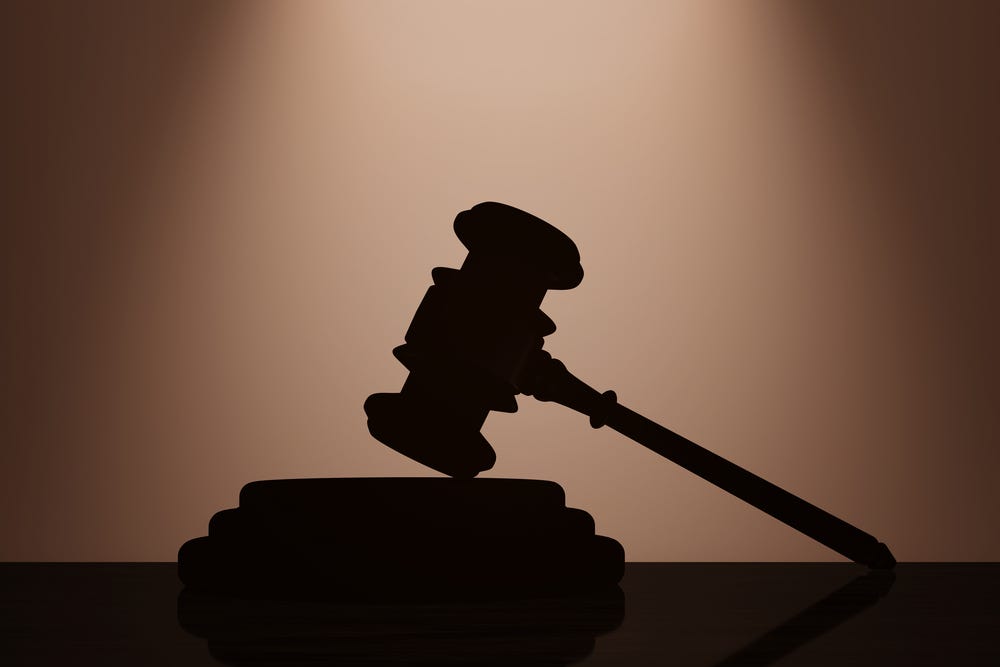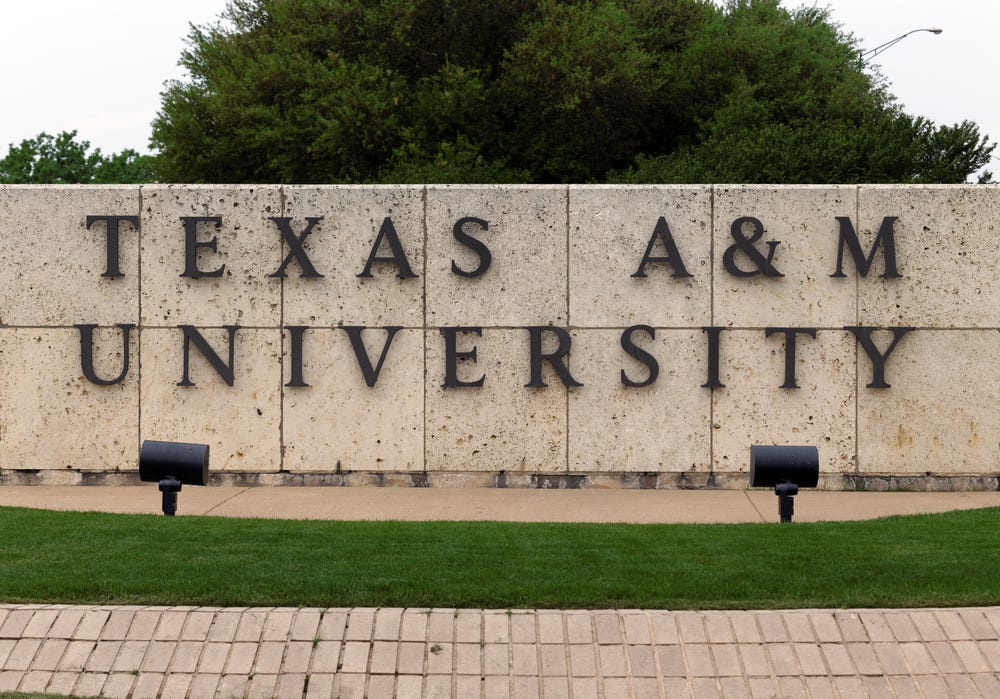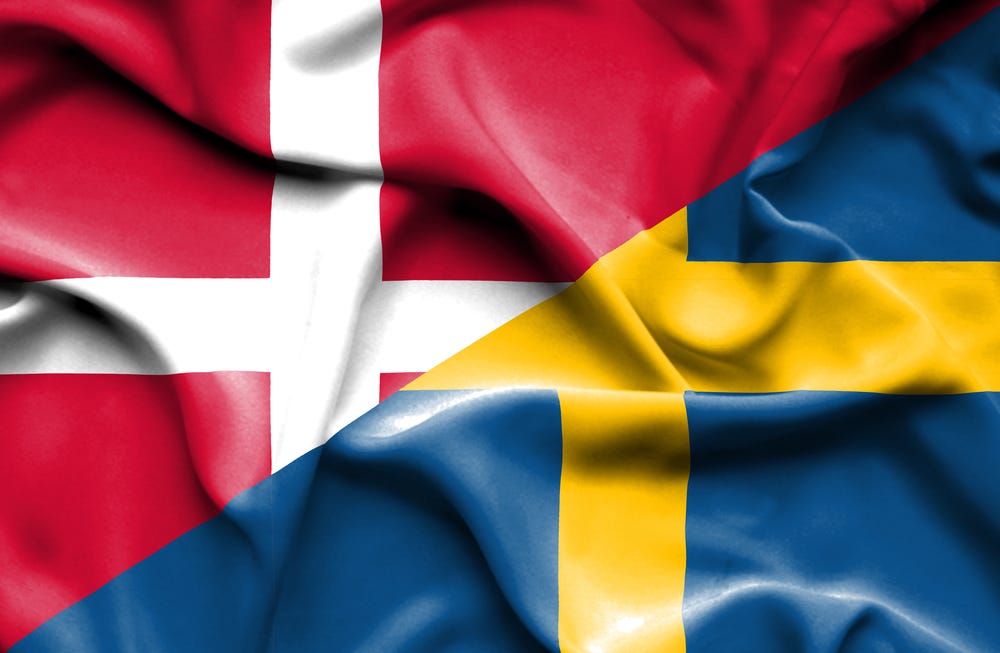E-Pluribus | August 10, 2023
Journalists side with public officials over controversial speech; politics threatens academic freedom; and Denmark and Sweden prepare to abandon free speech.
A round-up of the latest and best writing and musings on the rise of illiberalism in the public discourse:
Matt Welch: Why Kamala Harris Won't Be Asked About the Suicide of a Newspaperman She Persecuted
The First Amendment was never intended to promote popular speech; instead, it was meant to cement protections for speech that society may find unfavorable or even obscene. This week, alt-weekly publisher James Larkin committed suicide after multiple attempts to prosecute him and his business partner for their role in running the online classifieds site Backpage, known for its popularity among sex workers. At Reason, Matt Welch discusses the unfortunate impulse of reporters to side with government officials who go after “those from the professionally unpopular corners of the free speech industry.”
Far too often, journalists reserve their free speech defenses for people they actually like. And man, did they not like Jim Larkin and Mike Lacey.
This antipathy for Larkin/Lacey and the New Times alt-weekly chain the duo launched in Phoenix was obvious long before politicians began moving on from Craigslist to Backpage in their morally panicked crusade against technology companies that allegedly promote "sex trafficking." (I use quotation marks here not to intimate that sex trafficking does not exist, but rather that, as Reason's Elizabeth Nolan Brown has documented better than any living reporter, the term is overwhelmingly deployed by politicians and law enforcement to describe and punish conduct that has nothing whatsoever to do with forcing unwitting adults, let alone minors, into the sex business.)
The New Times honchos—especially Lacey, who was always the more public and pugilistic face of the franchise—were resented because they threw sharp elbows at both the graybeard alternative weeklies to their left and at the big-city dailies that were originally to their right but then tacked over time to the kind of bloodless lefty respectability space inhabited by NPR. The New Times papers hurled buckets of snark onto anyone perceived as Establishment, which pissed off boomer lefty journalists almost as much as elected Republican officials such as Maricopa County Sheriff Joe Arpaio and Arizona Sen. John McCain.
[ . . . ]
But the overarching journalism-industry response to the past seven years of Backpage founders being hounded by ambitious politicians and prosecutors and thrown into courtroom cages; their family members being pulled out of the shower; their bank accounts seized; their ankle bracelets affixed; and now one of the defendants offing himself has been studious indifference and silence. You will see 100 times more ink spilled this year on chimerical right-wing book bans than you will on the vice president's scapegoat blowing his brains out.
Journalists tend to be pretty good about looking backward through the decades and recognizing that, Oh shit, we kind of went overboard during that whole Satanic Panic thing. While better late than never, such correctives should lend urgency to the quest of finding injustices that are depriving people's liberty right the hell now.
Read it all.
Alex Morey: Keep Politics Out of Academic Hiring
In two troubling incidents at Texas A&M, a professor named Joy Alonzo was placed on administrative leave after Texas Lt. Governor Dan Patrick as alerted by a family friend that Alonzo criticized his handling of the opioid crisis. Another professor named Kathleen McElroy had an offer rescinded after alumni complained she was “too progressive.” At Persuasion, the Foundation for Individual Rights and Expression’s (FIRE) Alex Morey argues that universities bending to political pressure threatens the First Amendment and academic freedom.
Taken together, these two Texas-sized controversies are a testament to what happens when universities bend over backwards to please powerful outside actors. They raise the question of how lawmakers, alumni, and donors nationwide are using their power and influence to dictate the ideas taught in college classrooms, particularly in red states.
Of course, there is far from an ideological monopoly on censoring disfavored speech. Slightly more than half of documented scholar sanction attempts come from the left of the speaker. Progressive students routinely report their peers and faculty for so-called “hate speech.” Predominantly left-leaning administrators, in many cases, are all too happy to punish “offensive” or “discriminatory” speech or, recently, to force faculty to pledge allegiance to highly specific versions of DEI. Controversial not-progressive-enough speakers are also frequent targets.
But while this sort of pressure is the hallmark of the left, political meddling is the trending censorship tactic of the right.
[ . . . ]
Make no mistake: the kind of ultra-polarized, vindictive political wheeler-dealing that pollutes so much of our national landscape has no place in academia. Our public universities are society’s knowledge factories, testing ideas and mining facts using objective scientific principles. Student and faculty autonomy is key to fulfilling that educational mission, and must always be top of the list. Higher education ceases to function under conditions that severely limit the words, ideas, and views up for consideration—no matter what you think of the underlying ideas themselves, and no matter whether the threat comes from the left or the right.
Read the full piece.
Jacob Mchangama: Denmark and Sweden's Commitment to Free Speech Is Wilting in the Face of Quran Burnings
While concerns over the state of free speech in the U.S. grow, liberal democracies across the pond seem to have completely given up. At Time magazine, Jacob Mchangama, CEO of the Future of Free Speech Project at Vanderbilt University, writes about how Sweden and Denmark are seeking to pass legislation that would prevent actions “where other countries, cultures, and religions could be insulted.”
In July, an Iranian citizen burned the Danish and Swedish flags as well as the Bible and Torah in front of the Israeli embassy in Copenhagen, praising Ayatollah Khomeini in the process. But few Danes cared about this deliberate attempt to provoke. No one threatened to use violence, and the protester was not arrested. Rather than demonstrating Danish hypocrisy, the protester managed to show how a secular society committed to both free speech and tolerance can handle offensive ideas, and also how these values serve as the antithesis to violence.
Despite these and other demonstrable merits of free speech, the recent steps taken by Denmark and Sweden reveal a concerning trend. Bowing to intimidation from politically authoritarian and religiously oppressive states sets a perilous precedent and gives oppressive regimes potential leverage to further undermine democratic principles. To sweeten this bitter pill the Danish government has been less than factual in its messaging. Danish Prime Minister Mette Frederiksen said that burning “sacred books” does not constitute an expression, despite established case law to the contrary. The government has also said that Denmark and Sweden are global outliers when it comes to permitting the desecration of “sacred books” even though both Norway and the Netherlands protect such symbolic expression. There are already also strong reasons to believe that the OIC will not be appeased by the proposed Danish legal restrictions, however rationalized.
The next day after the Danish government´s promise to explore legal remedies against Quran burnings, the OIC released a strongly worded statement admonishing Denmark and Sweden for failing to immediately criminalize them and pledging to continue to pursue the matter. The Turkish ambassador to Denmark also warned that the proposed Danish efforts were "insufficient." In other words, once democracies yield from principle, authoritarian states will not respond with gratitude and conciliatory attitudes but demand that the self-imposed restrictions on free speech be expanded more broadly. This is not only true in Scandinavia but also on the global stage.
Read it all.
Around Twitter
Steve McGuire on DEI requirements at Cornell:
A thread from FIRE on new faculty requirements at West Virginia University:
Finally, via Steven Pinker, is there a balance to negative news?









